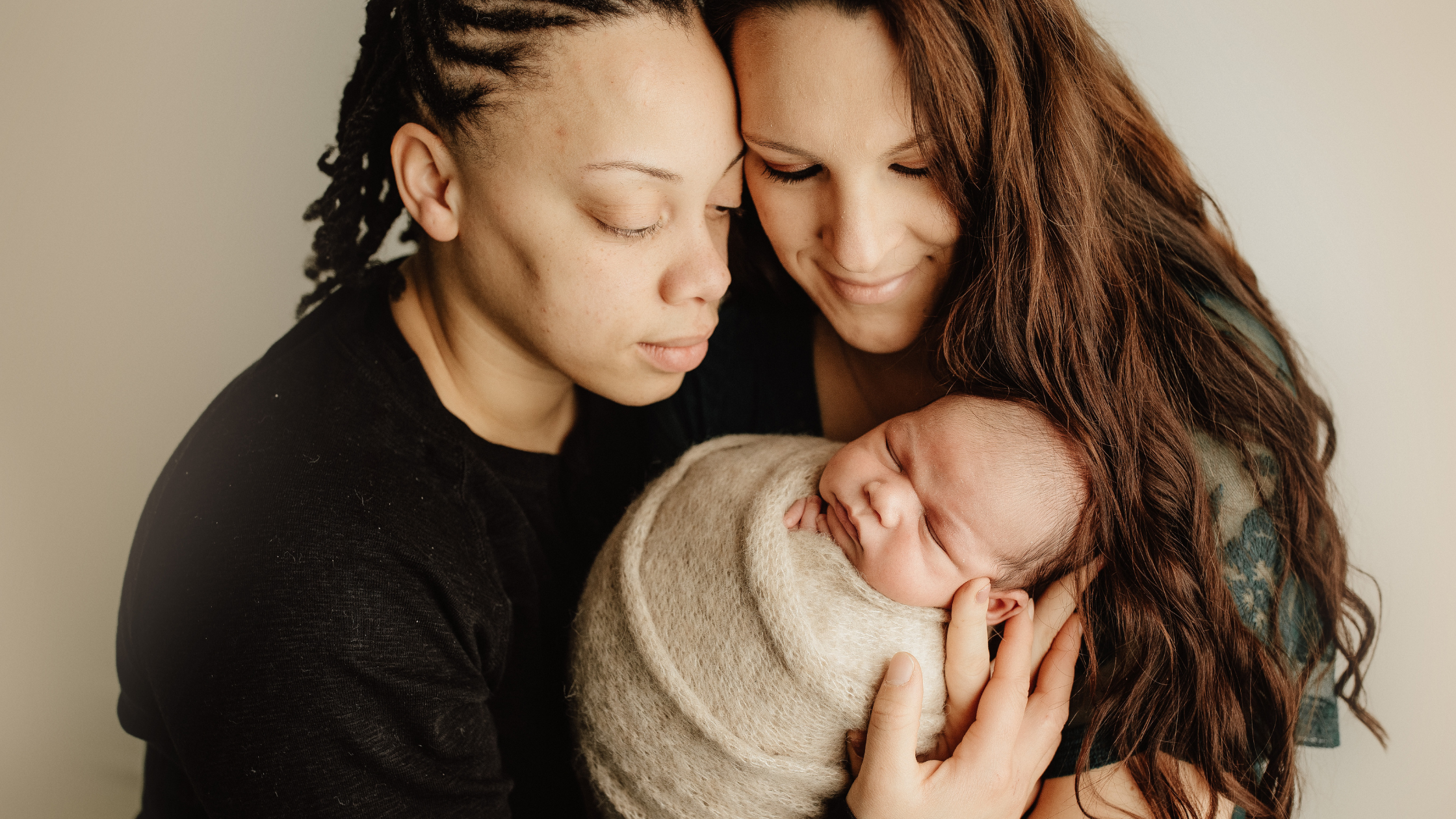Celebrating Mothers and Caregivers: How to Show Up for the People Who Show Up for Us this Mother’s Day
Mother’s Day is often a time to celebrate the mothers in our lives — but it’s also a moment to honor and recognize all the caregivers who show up for others, day in and day out.
Whether they are biological mothers, stepmothers, fathers who mother, grandmothers, aunts, or chosen family members, caregiving is a labor of love that transcends traditional definitions of motherhood. This day is not just for those who fit a specific mold, but for anyone who nurtures, supports, and cares for others in their community.
At its heart, Mother’s Day is an opportunity to express gratitude for those who provide care, love, and guidance — no matter their gender identity or family structure. As we celebrate caregivers this year, let’s do so in a way that is inclusive, thoughtful, and respectful of diverse family dynamics.
Here are some meaningful ways to show up for the mothers and caregivers in your life, while also acknowledging the unique challenges and experiences they may face.
1. Acknowledge the Diversity of Caregiving Roles
Mother’s Day often brings to mind biological mothers, but it’s essential to recognize the many forms that caregiving can take. Some people may be biological mothers, but others may be non-binary parents, queer mothers, or fathers who fulfill maternal roles. Many families are formed through adoption, surrogacy, fostering, or chosen family bonds — and each experience of caregiving is valuable.
When you reach out to celebrate someone this Mother’s Day, be mindful of their specific experience:
Celebrate biological mothers, stepmothers, non-binary parents, and those in queer families who may not always fit traditional ideas of “motherhood.”
Recognize chosen families where individuals assume caregiving roles, whether they are biological parents or not.
Acknowledge fathers who mother, grandparents who take on primary caregiving roles, and anyone who provides care, love, and support to others.
When you wish someone a “Happy Mother’s Day,” consider saying something more
inclusive like:
“Happy Mother’s Day to an incredible caregiver who brings so much love and light into our lives!”
“Wishing you a wonderful Mother’s Day! I’m so grateful for everything you do.”
“Sending love to you this Mother’s Day, wherever you find your sense of family.”
Being mindful of language helps ensure everyone feels included and appreciated, regardless of their identity.
2. Offer Practical Help and Relieve Their Stress
Mothers and caregivers often bear heavy responsibility, balancing work, family, and personal care. One of the best ways to show up this Mother’s Day is by offering practical support — giving them the opportunity to rest, recharge, or simply have a moment for themselves.
Take over household tasks: Cook meals, clean the house, or run errands. Remember, these tasks are not just mom’s responsibility; they’re a responsibility or everyone in the house. Take ownership of the tasks that suit your skills so you can alleviate their “mental load.”
Offer child or elder care: If they care for children or aging relatives, offer to step in for a few hours.
Support their time: Encourage them to take a break by watching the kids, helping with pets, or offering a mental health break.
Taking on the day-to-day tasks gives them the chance to relax, which can be a much-needed gift. For caregivers who may have difficulty asking for help, your offer to step in may mean more than you realize.
3. Create Space for Emotional Connection and Reflection
Many caregivers spend their days focused on the needs of others and may rarely take time for themselves. One of the best ways to show up is by creating space for them to reflect, feel seen, and connect emotionally. Ask open-ended questions and listen deeply to what they share. This can help foster a sense of emotional support and understanding.
Plan a conversation where you express gratitude and offer genuine appreciation for their care and sacrifices.
Share specific memories or stories of how their care impacted your life, letting them know the positive difference they’ve made.
Offer them a space to reflect on their experiences, struggles, or dreams without judgment. Sometimes, being a compassionate listener is the most valuable gift.
Take time to grieve the memory of past generations of mothers and caregivers.
While Mother’s Day is about celebration, it can also be an opportunity to check in and ensure caregivers have the emotional space they need.
4. Encourage Mental Health and Self-Care
Caregiving can be physically and emotionally draining, and it often takes a toll on the caregiver’s mental health. Many mothers and caregivers neglect their well-being to care for others, but it’s essential that they prioritize their mental health too. This Mother’s Day, show up by encouraging and supporting their self-care journey.
Gift mental health resources: This could be a therapy session, a mental health app subscription, or a mindfulness course.
Encourage self-care rituals: A yoga class, a meditation app, or even a quiet moment with a favorite book or tea can help them recharge.
Normalize the need for mental health care: Remind them that caring for their emotional health is just as important as caring for others. If they’re struggling, support their decision to seek therapy or counseling.
By offering support in mental health and self-care, you help ensure that they don’t burn out and feel valued as a whole person, not just as a caregiver.
5. Offer Thoughtful, Personalized Gifts
While flowers and chocolates are classic gifts, a more thoughtful, personalized gesture can have a lasting impact. Consider what would make them feel appreciated, valued, and seen for the unique person they are. This is especially important for caregivers who may not often receive recognition for their role.
A handwritten note or letter expressing gratitude, detailing specific moments when their care made a difference in your life.
Personalized self-care kits: Gather items that help them relax, such as scented candles, cozy blankets, essential oils, or favorite snacks.
A memory book or photo album: A curated collection of cherished memories or special moments shared can be a beautiful and meaningful gift.
A thoughtful, customized gift shows that you’ve truly taken the time to consider what would bring them joy and comfort.
6. Be Inclusive in Your Celebrations
Mother’s Day can be complicated for many people — not everyone has a relationship with their biological mother, and some may experience loss, estrangement, or complicated family dynamics. Additionally, people who are LGBTQIA+ may face unique challenges or feel overlooked on Mother’s Day if they are not celebrated in the traditional ways.
This year, take extra care in being inclusive:
Reach out to those who may be grieving: For those who have lost mothers, children, or other significant caregivers, offer a message of support. Acknowledge their pain and let them know you’re thinking of them.
Celebrate non-biological families: For LGBTQIA+ individuals or families with diverse structures, recognize that caregiving comes in many forms. Celebrate the love and care chosen family, friends, and partners provide.
Avoid assumptions: Be mindful not to assume that someone identifies as a mother, especially if they are not a biological parent or if they identify as non-binary or gender-fluid. Instead, ask how they prefer to be celebrated and respected on this day.
Offering inclusive language and recognizing the diversity of caregiving experiences ensures that everyone feels seen and respected, regardless of their identity or family structure.
7. Support Year-Round Caregiving
Mother’s Day is an excellent time to express appreciation, but caregiving doesn’t end
after the holiday. Show up for the caregivers in your life throughout the year. Consistent support, whether through acts of kindness, offering help, or simply checking in, is a way to reinforce the care they offer every day.
Check in regularly: Ask how they’re doing and whether they need help. Just knowing someone cares can make a world of difference.
Offer consistent support: take on regular chores, help with child or elder care, or simply provide a safe space to talk.
Recognize their worth: Remind them regularly that their efforts don’t go unnoticed, and that they are valued for everything they do.
By regularly practicing caregiving support, you create an ongoing relationship built on care, respect, and gratitude.
Conclusion
Mother’s Day is a time to celebrate all those who give love, care, and support to others — whether they are mothers, fathers, or anyone in between. This year, take the opportunity to show up for the caregivers in your life with thoughtfulness, compassion, and inclusivity. Acknowledge their efforts, offer meaningful support, and create space for emotional connection. Most importantly, remember that caregiving is an ongoing responsibility, and showing up year-round is the best way to honor their work.
If you are a mother or caregiver and are looking to support your mental health, we encourage you to get in touch with Sam or anyone else on our team and begin the therapeutic process.
From all of us at Hold the Vision Therapy, Happy Mother’s Day to all the caregivers out there, in all their diverse forms, including the mothers in our lives. Your love, care, and strength make the world feel less scary.




